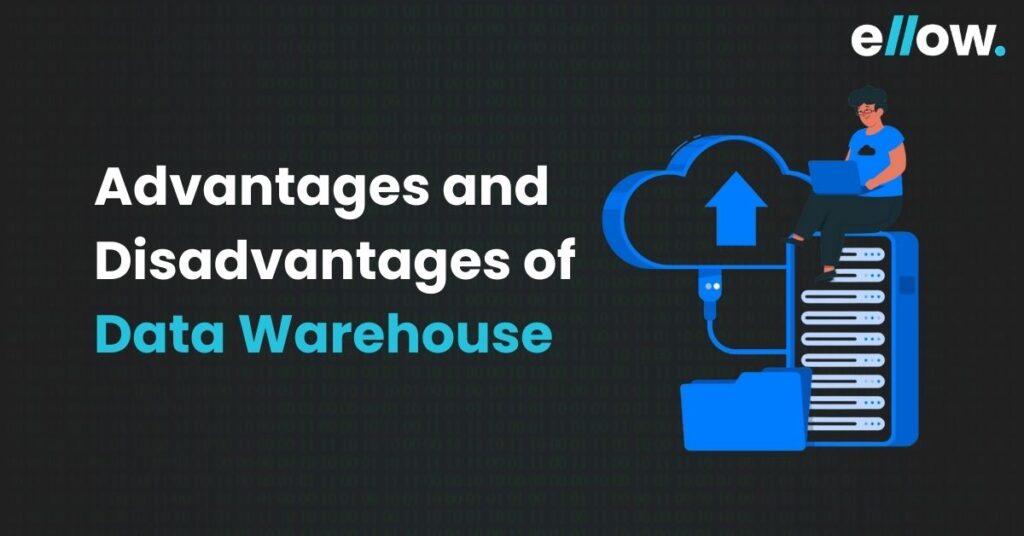Advantages and Disadvantages of Data Warehouse

Advantages of Data Warehouse:
-
Centralized Data:
- Data warehouses provide a centralized repository for integrated data from various sources within an organization. This facilitates a unified and consistent view of data across the entire organization.
-
Improved Decision-Making:
- By providing a comprehensive and historical view of data, data warehouses empower organizations to make informed and strategic decisions. Decision-makers can analyze trends, patterns, and relationships in the data.
-
Enhanced Data Quality:
- Data warehouses often include processes for data cleaning and transformation during the Extract, Transform, Load (ETL) phase. This helps ensure that the data is accurate, consistent, and of high quality.
-
Time-Variant Analysis:
- The ability to store historical data allows for time-variant analysis, enabling organizations to track changes over time and identify trends. This is crucial for business intelligence and planning.
-
Efficient Query Performance:
- Data warehouses are optimized for query performance, allowing users to run complex queries and aggregations efficiently. This supports faster data retrieval for reporting and analysis.
-
Scalability:
- Data warehouses are designed to handle large volumes of data and are scalable to accommodate growing data needs. This ensures that the system can evolve with the organization's data requirements.
-
Business Intelligence Support:
- Data warehouses serve as a foundation for business intelligence (BI) tools and analytics platforms. This integration enhances the capabilities of BI applications and facilitates data-driven decision-making.
-
Facilitates Data Mining and Predictive Analytics:
- Data warehouses provide a robust foundation for data mining and predictive analytics. Organizations can discover hidden patterns, correlations, and insights from their data.
-
Consolidation of Multiple Data Sources:
- Organizations often have data stored in different systems and formats. Data warehouses consolidate data from disparate sources, providing a unified view without the need to access multiple databases.
Disadvantages of Data Warehouse:
-
High Initial Cost:
- Implementing a data warehouse involves significant upfront costs for hardware, software, and implementation. This can be a barrier for smaller organizations with limited budgets.
-
Complex Implementation:
- Building and maintaining a data warehouse is a complex process. It requires expertise in data modeling, ETL processes, and database management, making implementation challenging for some organizations.
-
Data Latency:
- Despite the ability to store historical data, there may be some latency in the availability of real-time data in a data warehouse. This could be a limitation for organizations requiring up-to-the-minute information.
-
Data Security Concerns:
- Centralizing sensitive data in a data warehouse raises security concerns. Organizations must implement robust security measures to protect against unauthorized access and data breaches.
-
Potential for Data Redundancy:
- In the process of consolidating data from various sources, there's a risk of data redundancy. Maintaining data consistency and avoiding duplication requires careful planning.
-
Dependency on Data Quality:
- The effectiveness of a data warehouse is highly dependent on the quality of the data it contains. If the underlying data is inaccurate or incomplete, the insights derived from the warehouse may be compromised.
-
Resistance to Cultural Change:
- The adoption of a data warehouse often requires a cultural shift within an organization. Resistance to change from employees accustomed to existing systems can be a challenge.
-
Limited Support for Unstructured Data:
- Traditional data warehouses are optimized for structured data. They may have limitations in handling unstructured or semi-structured data types, which are increasingly important in today's data landscape.
Despite the challenges, the advantages of data warehouses often outweigh the disadvantages for organizations seeking to harness the power of their data for strategic decision-making and business intelligence.
Thank you,
